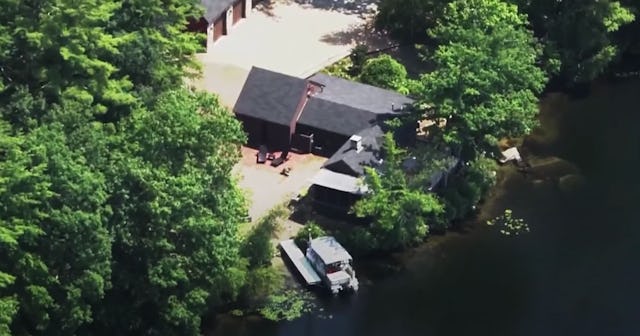This Camp Is Being Compared To ‘Fyre Festival’: It Closed In Six Days

Sleepaway camp is a summer rite of passage for many kids—my kids included. The motto that they live by is 10-for-2. It’s something about getting through ten months of the year just to get to those magical two months at camp. (Obviously, I never went to sleepaway camp.)
Last year, due to COVID, most sleepaway camps could not open safely. They tried to figure out a way to make it work, but ultimately safety concerns kept their gates locked. It was the first time in summer camp history that sleepaway camps didn’t open.
This summer, the camps were raring to go. Many of them hosted endless Zoom meetings to discuss vaccines, masking, testing, and quarantining protocols. Most of them spoke with experts and public health departments. They expected and prepared for challenges. Very definitely, their concern was safety.
But no camp was able to prepare for every challenge. This year, sleepaway camps saw their share of struggles. From COVID breakouts to staffing difficulties to behavioral issues in both kids and parents, sleepaway camps this summer were tested in new ways. Many found a way to succeed.
One camp very definitely did not. Camp Quinebarge closed just six days after it opened. It promised a summer of fun and delivered a summer that was…less than. The camp reportedly experienced delays in food delivery and struggled to hire staff and then retain that staff once the campers arrived. There were dirty dishes at meals and vomiting followed by quarantining and behavior issues in campers. In a note anonymously provided to the Boston Globe, one camper wrote, “We have been in tears, bored, and devastated the whole day. [The camp director] is lying to you all.” He continued, “You have to trust us. You have to. We are not joking and we are not having fun. So many things are wrong with this place.” The camp closed before the New Hampshire Department of Health and Human Services conducted its in-season inspection.
Initially, the camp director, Eric Carlson, admitted in a note to parents that “the last couple of days have been a bit rough.” Five days later, that “bit rough” became camp is shutting down due to staffing issues and food delivery delays. In a note signed by Carlson and other camp administrators, parents were asked to “pick up their campers tomorrow.”
(As a mom with two children in sleepaway camp, I don’t even want to imagine how the parents felt receiving that note. The worry alone would be incapacitating.)
As a result, Camp Quinebarge is being compared to the Fyre Festival—the now infamous music festival where ticket holders were promised luxury accommodations and the party of a lifetime, and instead received plain cheese sandwiches and FEMA tents.
While the comparison is on the nose in terms of big promises and epic fails, it probably requires a little more nuance than a one-to-one comparison. Fyre Festival involved negligence, fraud, and greed. Based on my understanding of what happened at Camp Quinebarge, the camp suffered a crisis spurred by the pandemic and its fallout, and then exacerbated by mismanagement. The camp’s leaders underestimated the challenges the pandemic created—not only in terms of COVID safety, but also with respect to how hard it would be to staff the camp and get necessary supplies. (That’s not a pass or an excuse, by the way, just a distinction in terms of intent.)
Thomas Barwick/Getty
They scrambled to find staff and then scrambled to train that staff in time. M.J. Lowry, a twenty-one-year-old college student described her experience as a counselor at Camp Quinebarge. She noted that the director seemed desperate, and offered to pay for her flight to camp. She arrived from Louisiana two days before the first campers arrived and realized there’d be no time to prepare.
“We were treated like garbage,” Ms. Lowry said in an interview with the New York Times, “and also given garbage pay.” One of the parents later discovered that counselors were being paid $2,500—for the summer.
Many of the camps experienced a hiring crunch. Alongside the tight labor market that’s affecting a number of industries, summer camps also had to confront the reality that the international seasonal workers who usually arrive on visas to staff the camp were unable to come this year. Most camps figured it out. Camp Quinebarge didn’t.
To be fair, Camp Quinebarge also wasn’t the only camp to shut down. Other camps in the northeast were forced to also close down midseason—something that was unheard of prior to the pandemic.
Appel Farm Arts Camp in NJ canceled late-summer sessions due to staff shortages in the kitchen and maintenance departments, and food supply delivery issues. Camp Shane in Connecticut was also forced to shut down suddenly on July 13. Nearly half of its counselors left after the first two weeks. However, Camp Quinebarge stands alone in the wholeness of its failure–from a broken dishwasher that resulted in meals being served on dirty plates to failing to inform parents that kids were quarantined due to vomiting.
While I do believe the comparison to Fyre Festival is not exactly fair, Camp Quinebarge was entrusted with children. When kids are involved, excuses and explanations aren’t enough. None of what happened is acceptable. The real victims are the kids, who’ve made it this many months into a pandemic and were promised a happy summer, and instead ended up with more disappointment.